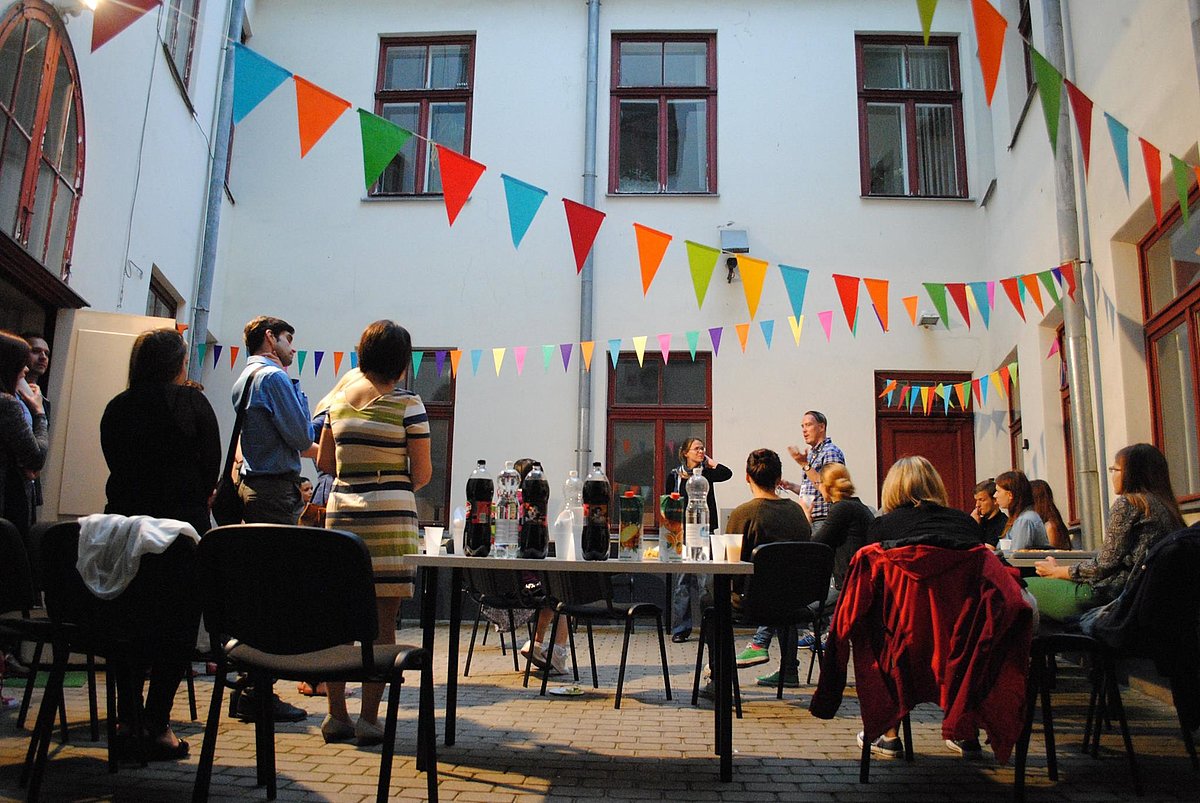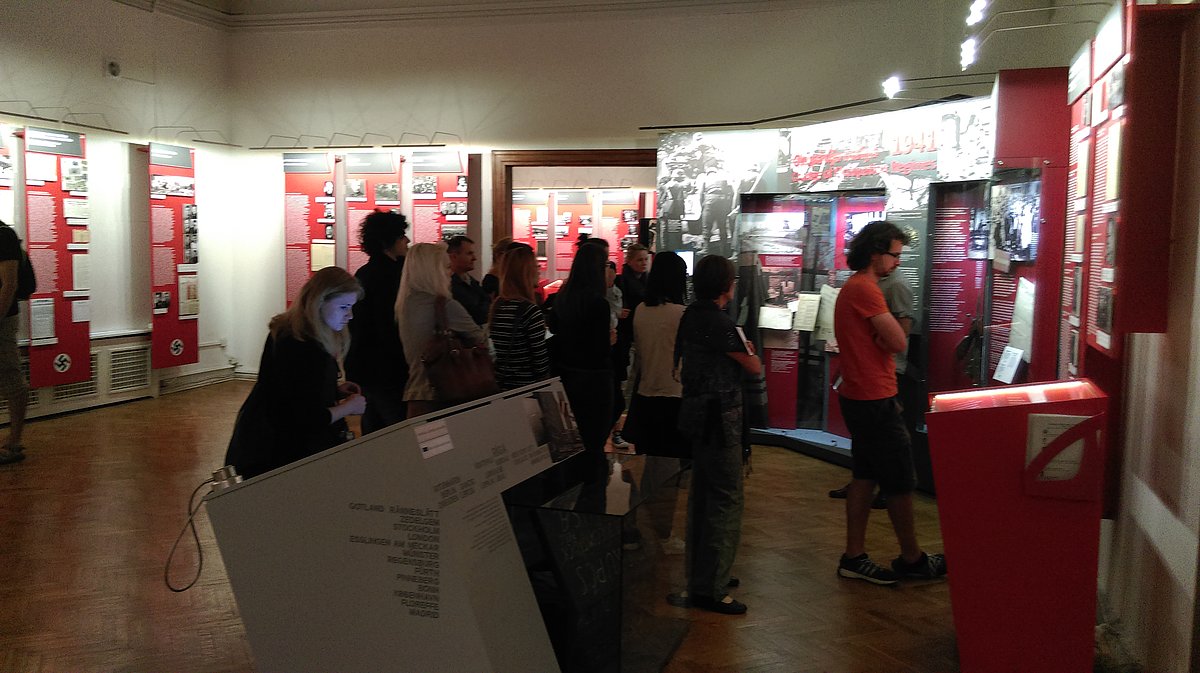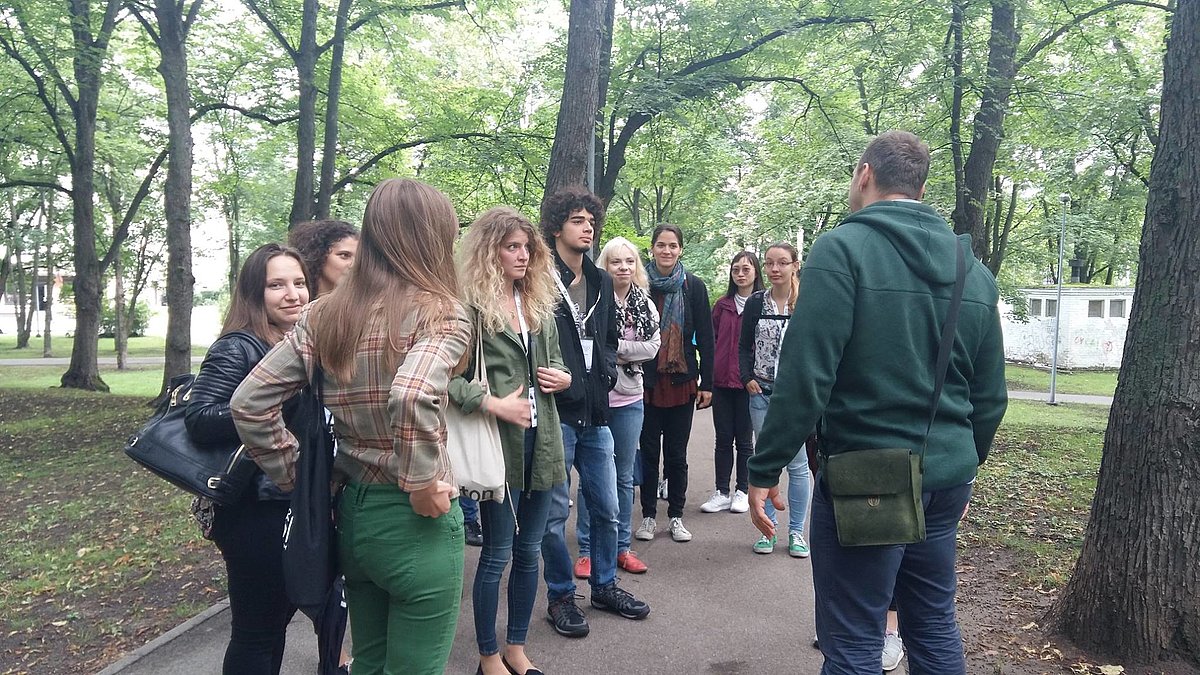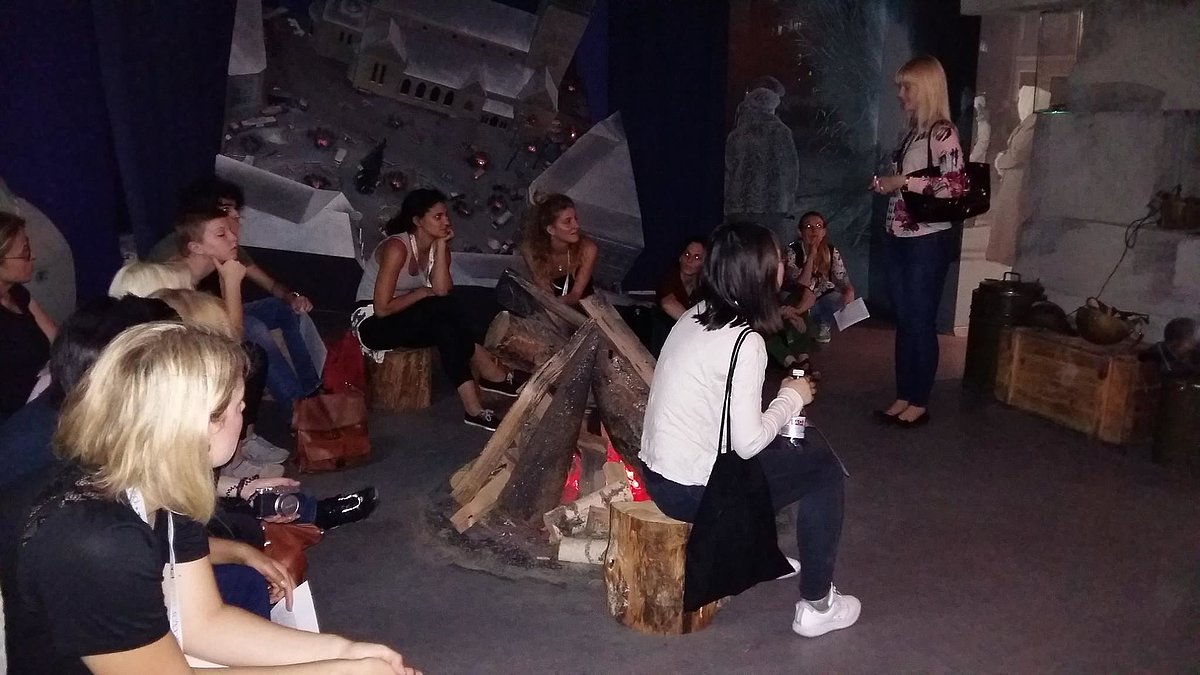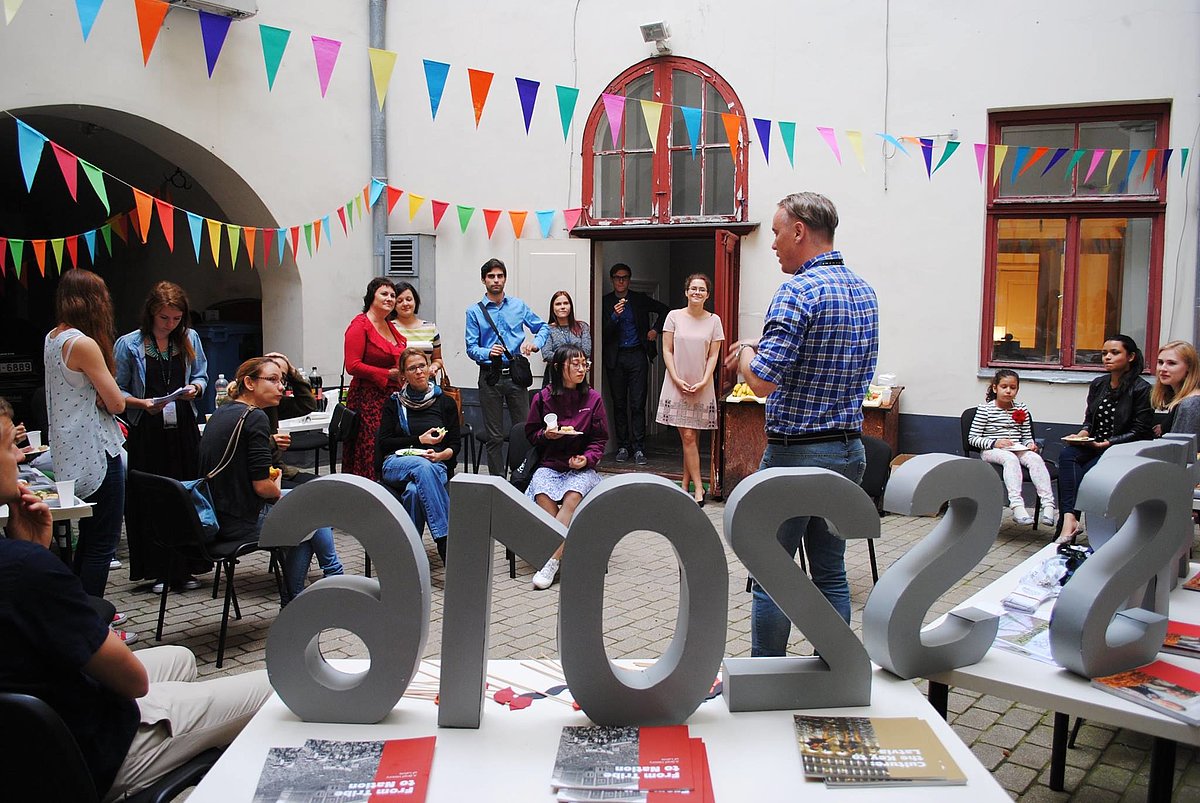
Within the creative environment of the welcome picnic the director of Riga Summer School, Kaspars Rūklis greeted the participants with the beginning of summer school and wished productive work following the next two weeks where students will have to leave a lasting mark in the field of documentary films. During the picnic participants, lecturers and organizers got acquainted with each other by presenting themselves in the form of short and engaging speeches.
The program for the first few days of Riga Summer School 2016 includes visiting the Museum of the Occupation of Latvia, Latvian National Museum of Art, Museum of Barricades of 1991, as well as Latvian National Theatre, monument dedicated to victims of the Soviet deportations in Torņakalns and the historic Riga ghetto along with researchers of "LIVINGMEMORIES" project. Furthermore, during the weekend the participants of the summer school will travel to Liepaja and Daugavpils in two groups.
Summer school is being organized by University of Latvia, Faculty of Social Sciences, Department of Communication Studies and this year it will take place for the 6th time. Each year the culmination of Riga Summer School is the premiere of short documentary films. This year it will be held in the eve of summer’s school closing day, on August 17, at 7 p.m. at the Goethe Institute in Riga (Tower St. 1). Entrance will be free.
Project’s "Living Together with Difficult Memories and Diverse Identities" or “LIVINGMEMORIES” research group from University of Latvia is led by Professor, Dr. hist. Vita Zelče. Researchers involved in the working group are Dr. sc. comm. Laura Ardava, Dr. sc. comm. Didzis Bērziņš, Dr. soc. sc. Jurijs Ņikišins and Dr. art. Zane Radzobe, Mg. soc. sc. Sanita Burķīte and Mg. soc. sc. Aija Rozenšteine. The task of the research group of University of Latvia is to analyze society’s life after violent conflicts, the occupation, the Holocaust and repressions that led to the traumatic experience and the formation of new ways of living and practices of maintaining and reproducing memory. At the University of Latvia the project is implemented by the Social Memory Research Centre – interdisciplinary research unit of the Advanced Social and Political Research Institute of the Faculty of Social Sciences.
Project “LIVINGMEMORIES” is an interdisciplinary social science and humanities project, which focuses on problematic social memory, as well as on the imprints of conflicts and protest movements on memory and identity. Within the project research groups from University of Helsinki, which is the leading partner, Perm National Polytechnic University, University of Tartu, Goethe University of Frankfurt am Main, Koç University in Istanbul and University of Latvia are working together. The co-ordinator of the project is Dr. phil. Kirsti Salmi-Niklander from University of Helsinki. This is the first social science and humanities project that is implemented in the program ERA.NET RUS PLUS (EU-FP7). This is the European Union’s 7th Framework Program, which focuses on the promotion of European Union member state scientific cooperation with Russian scientists.

 LU konference
LU konference